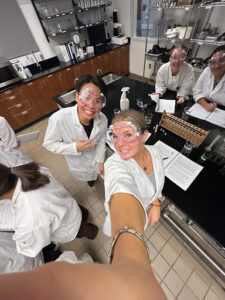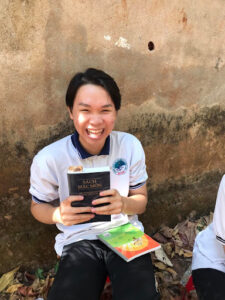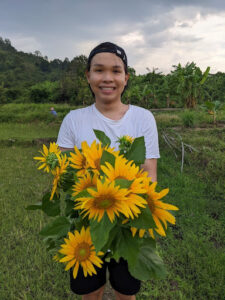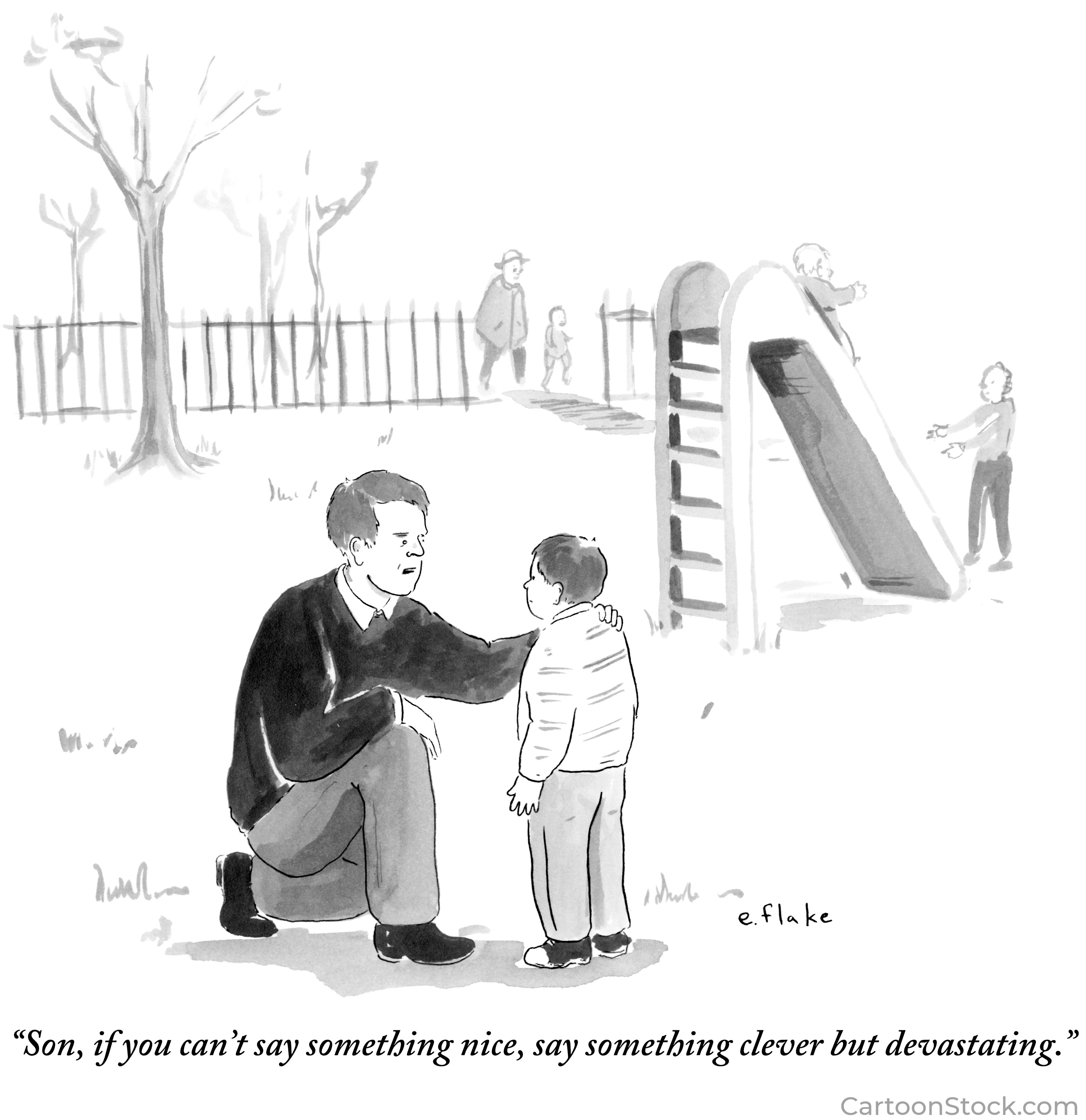The first time I met Kai, he was coming to my home for Christmas. As a student at BYU-Idaho, traveling to Vietnam for the holiday was prohibitive for Kai, but since my son had become friends with him, we were able to have him join us.
In conversations across kitchen counters and in deep, comfy armchairs, Kai’s story came to life one “tell me more about that” at a time. Kai’s story begins in the peaceful countryside of Vietnam, four hours away from the bustling city of Saigon. Growing up on a family farm, Kai’s childhood was marked by simplicity and tranquility. He often helped his mother at their family’s baked goods stall, where the transformation of dough into delicious treats ignited his passion for cooking and baking. “During my third-grade year, I was so passionate about it that my brother bought me a baking book,” Kai recalls.
Around that same time, his family installed an internet connection. Kai vividly remembers overhearing his brother playing games in English. “I wondered what those words meant,” he says. “They looked cool, and it was the first time I realized that not everyone spoke Vietnamese.” As Kai’s interest in baking and English grew, he faced the challenge of finding ingredients and tools in the countryside. Undeterred, he turned to YouTube cooking shows, where he read subtitles and learned English through culinary terms like “sprinkle,” “boiling,” and “flipping.” Almost two-thirds of BYU-Idaho students graduate with zero student debt.
While exploring options that would satisfy both his aspirations and his parents’ wishes, Kai discovered the “food science” program at BYU-Idaho. This program offered not only professional culinary training but also an affordable education, which was crucial for his family. Notably, almost two-thirds of BYU-Idaho students graduate with zero student debt. The university takes families like Kai’s into consideration when making decisions about education costs at an administrative level. “We’re very serious about minimizing the financial burden of higher education,” said Alvin F. Meredith III, president of BYU-Idaho. The program aligned perfectly with Kai’s dream of professional culinary training. However, there was a unique aspect to the application process—an ecclesiastical endorsement. “I didn’t want to research the Church, but I needed to talk to a local religious leader,” Kai explains.
Despite initial doubts, this requirement led to a transformative journey. The first part of the journey started with a 5:00 a.m. three-hour trip to visit a local bishop of The Church of Jesus Christ of Latter-day Saints. As he was leaving the meeting, he saw a Book of Mormon sitting on display. With his natural curiosity and love for reading, he asked a missionary—Elder Romney, if he had a copy lying around for purchase. The elder happily handed the book to Kai. “No charge, it’s all yours, man.” Kai didn’t stop reading the entire ride back home. It quickly became the only book he would read. He started praying and studying the gospel almost every day. He read it diligently and took it everywhere he went: to school, to parks, the gym, and he even shared it with his friends. He had a two-hour lesson with his missionaries over Zoom every week. Four or five months passed, and during his usual lesson on a summer night, Elder Romney suddenly stopped, looked at Kai, and asked. “Do you believe The Church of Jesus Christ of Latter-day Saints is the true church of Christ?”—“Yes, I do.”— After a long pause, he continued, “Do you want to get baptized as a member of The Church of Jesus Christ of Latter-day Saints?”
“I do.”
During that time, Kai was also connected with a peer mentor from BYU-Idaho. “He started talking with me and texting on WhatsApp. It gave me and my family a lot of assurance.” This mentor not only provided guidance but also picked him up from the airport and helped him settle in. “I felt an immense feeling of gratefulness for someone I’d never met. He was volunteering and really a friend. I was just so overwhelmed!”
BYU-Idaho’s Peer Mentoring program pairs new students with experienced peers to help them connect to resources and adjust to campus life. “I think it’s a very unique thing that we do, and it comes from a place of compassion,” said senior Kimberly Coffman, a peer mentor at BYU-Idaho. “There are so many who want to participate as mentors. They know what it’s like to be on both sides of the student experience and just want to be able to help during what can be a difficult or just different transition.” Kai is now giving back by serving as a mentor for incoming first-year students. “Most of my friends here had 4.0s in high school.”
The transition from a rural farming community in Vietnam to a rural university setting in Idaho was both surreal and comforting for Kai. While the landscapes were worlds apart, the familiar sense of community and simplicity provided a sense of home. BYU-Idaho, nestled in the quiet town of Rexburg, Idaho, mirrored the peacefulness Kai had known throughout his childhood. Here, students from diverse backgrounds come together, creating a supportive and nurturing environment. The International Services office’s self-proclaimed motto is “making sure students are happy, healthy, and safe.” They help international students obtain and maintain their student visas, adjust to Rexburg, and connect to resources from application to graduation and even to postgraduate internships. For other international students considering BYU-Idaho, Kai offers strong encouragement. “There are many international students here, and the native students are welcoming and kind. Even though there are no other Vietnamese students, they help me feel cared for and loved.”
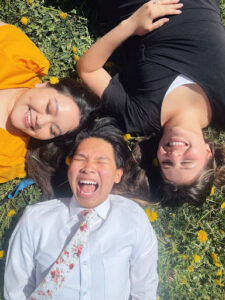
The resources at BYU-Idaho extend beyond academics to include both physical and mental health support—Kai refers to the Hart Building as the most “magical” building on campus. He also appreciates the wholesome social environment that is different from other colleges, where social life often involves partying. “At BYU-Idaho, people go skating, have ice cream dates, watch movies—it feels like a safe place.”
Addressing common misconceptions about BYU-Idaho, Kai explains that while the honor code may seem strict, it nurtures agency and encourages personal growth. “If you’re struggling, the bishop and ward family are there to help you become a better person, not to force you.” This inclusive environment is reflective of the school’s 97% acceptance rate. Kai recognizes that some people may misunderstand that as a lack of prestige. However, Kai says he has found a strong academic environment. “Most of my friends here had 4.0s in high school,” he explains. “Somehow, the school keeps a balance of support alongside an expectation of excellence. My teachers come from rigorous academic backgrounds with a lot of research experience and have a willingness and enthusiasm for getting to know their students and striving to help them in every way possible.” “There is something special happening here in Rexburg.”
The mission of BYU-Idaho is to help students become disciples of Jesus Christ who are leaders in their homes, the Church, and their communities. “There is something special happening here in Rexburg. It’s not just in the buildings, it’s in the people,” said President Meredith. “Elder Bednar, when he was president of BYU-Idaho, gave a message to students just five weeks before he was called to be an apostle. He said, ‘Let me suggest that in Rexburg, Idaho, we are in the process of creating a disciple preparation center.’ I think that’s a powerful way to describe what BYU-Idaho is about.”
Kai’s journey from the landscape of his childhood in the Vietnamese countryside to the heartland of the American West may have seemed improbable, but it is a testament to the power of perseverance, curiosity, and a community intentionally structured to support his success. His story reminds us that dreams can become reality. In the fertile soil of BYU-Idaho, a place that felt both foreign and familiar, Kai’s dreams and discipleship have taken root.
